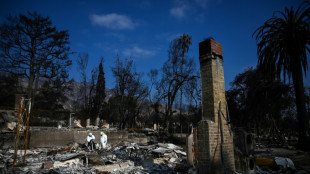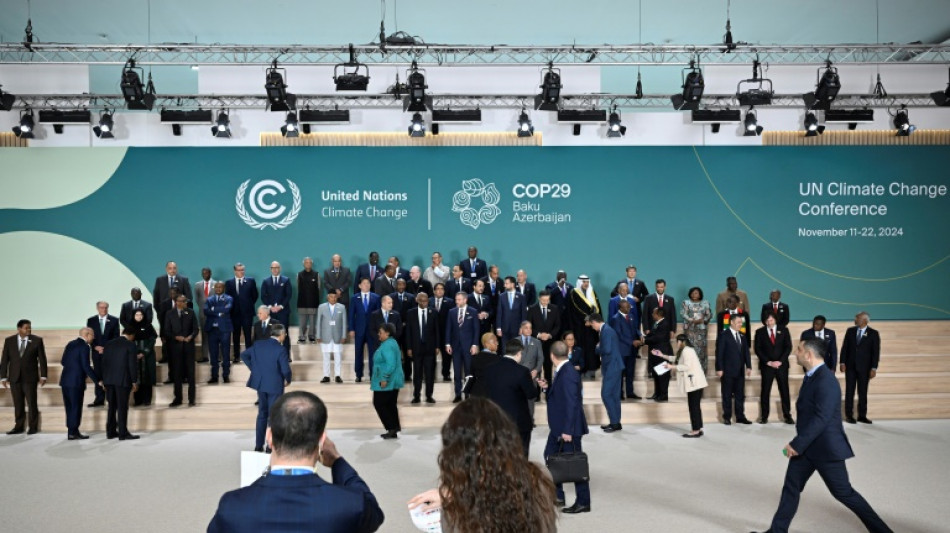
-
 Albon says Thailand taking bid for F1 race 'very seriously'
Albon says Thailand taking bid for F1 race 'very seriously'
-
'It's gone': conservation science in Thailand's burning forest
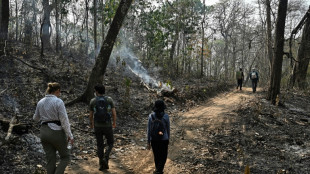
-
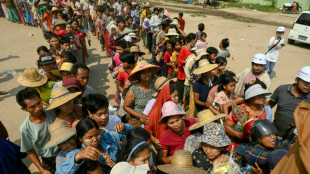 Protest as quake-hit Myanmar junta chief joins Bangkok summit
Protest as quake-hit Myanmar junta chief joins Bangkok summit
-
EU leaders push for influence at Central Asia summit
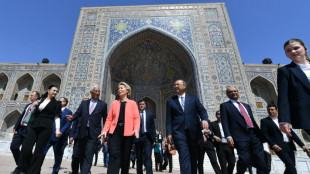
-
 Asian stocks extend global rout after Trump's shock tariff blitz
Asian stocks extend global rout after Trump's shock tariff blitz
-
Lewandowski, Mbappe duel fuelling tight La Liga title race

-
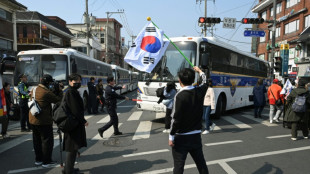 South Korea court upholds President Yoon's impeachment, strips him of office
South Korea court upholds President Yoon's impeachment, strips him of office
-
Liverpool march towards title as Man City face Man Utd

-
 Finland's colossal bomb shelters a model for jittery Europe
Finland's colossal bomb shelters a model for jittery Europe
-
Athletes frustrated as France mulls Muslim headscarf ban in sport

-
 Korda downs Kupcho to stay alive at LPGA Match Play
Korda downs Kupcho to stay alive at LPGA Match Play
-
German industry grapples with AI at trade fair

-
 Irish school trains thatchers to save iconic roofs
Irish school trains thatchers to save iconic roofs
-
'Frightening': US restaurants, producers face tariff whiplash
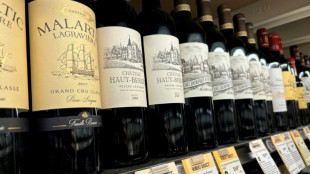
-
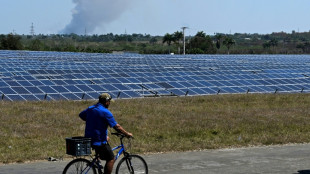 Cuba looks to sun to solve its energy crisis
Cuba looks to sun to solve its energy crisis
-
Experts warn 'AI-written' paper is latest spin on climate change denial

-
 PSG eye becoming France's first 'Invincibles'
PSG eye becoming France's first 'Invincibles'
-
Late birdie burst lifts Ryder to Texas Open lead

-
 Five potential Grand National fairytale endings
Five potential Grand National fairytale endings
-
Trump purges national security team after meeting conspiracist

-
 More work for McIlroy even with two wins before Masters
More work for McIlroy even with two wins before Masters
-
Trump hopeful of 'great' PGA-LIV golf merger
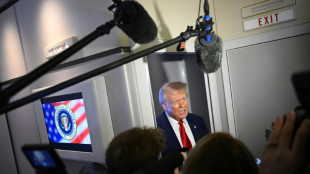
-
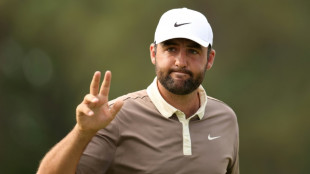 No.1 Scheffler goes for third Masters crown in four years
No.1 Scheffler goes for third Masters crown in four years
-
Where Trump's tariffs could hurt Americans' wallets

-
 Trump says 'very close to a deal' on TikTok
Trump says 'very close to a deal' on TikTok
-
Trump tariffs on Mexico: the good, the bad, the unknown

-
 Postecoglou denies taunting Spurs fans in Chelsea defeat
Postecoglou denies taunting Spurs fans in Chelsea defeat
-
Oscar-winning Palestinian director speaks at UN on Israeli settlements

-
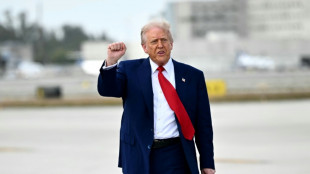 With tariff war, Trump also reshapes how US treats allies
With tariff war, Trump also reshapes how US treats allies
-
Fernandez fires Chelsea into fourth as pressure mounts on Postecoglou

-
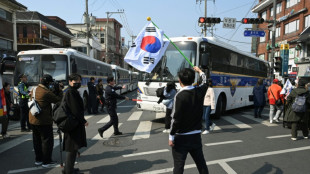 South Korea court to decide impeached president's fate
South Korea court to decide impeached president's fate
-
Penguin memes take flight after Trump tariffs remote island
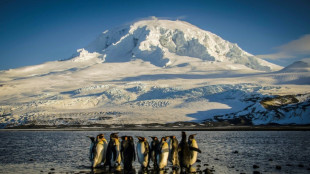
-
 E.T., no home: Original model of movie alien doesn't sell at auction
E.T., no home: Original model of movie alien doesn't sell at auction
-
Italy's Brignone has surgery on broken leg with Winter Olympics looming

-
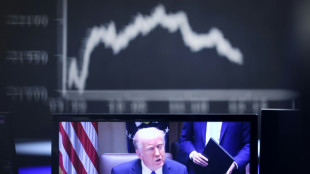 Trump defiant as tariffs send world markets into panic
Trump defiant as tariffs send world markets into panic
-
City officials vote to repair roof on home of MLB Rays

-
 Rockets forward Brooks gets one-game NBA ban for technicals
Rockets forward Brooks gets one-game NBA ban for technicals
-
Pentagon watchdog to probe defense chief over Signal chat row
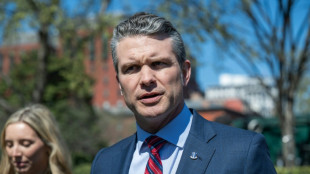
-
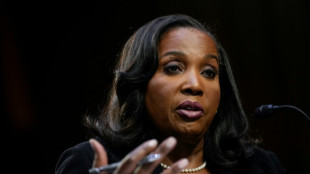 US tariffs could push up inflation, slow growth: Fed official
US tariffs could push up inflation, slow growth: Fed official
-
New Bruce Springsteen music set for June 27 release

-
 Tom Cruise pays tribute to Val Kilmer
Tom Cruise pays tribute to Val Kilmer
-
Mexico president welcomes being left off Trump's tariffs list
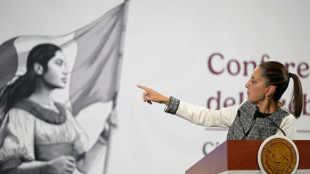
-
 Zuckerberg repeats Trump visits in bid to settle antitrust case
Zuckerberg repeats Trump visits in bid to settle antitrust case
-
US fencer disqualified for not facing transgender rival

-
 'Everyone worried' by Trump tariffs in France's champagne region
'Everyone worried' by Trump tariffs in France's champagne region
-
Italy's Brignone suffers broken leg with Winter Olympics looming

-
 Iyer blitz powers Kolkata to big IPL win over Hyderabad
Iyer blitz powers Kolkata to big IPL win over Hyderabad
-
Russian soprano Netrebko to return to London's Royal Opera House

-
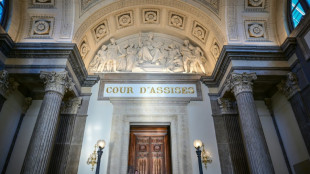 French creche worker gets 25 years for killing baby with drain cleaner
French creche worker gets 25 years for killing baby with drain cleaner
-
UK avoids worst US tariffs post-Brexit, but no celebrations
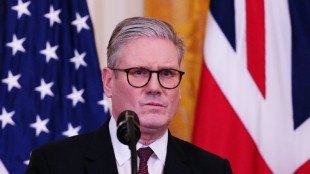

Failure haunts UN environment conferences
Negotiators were struggling to reach a deal Saturday at UN climate talks in Baku. If they fail, it would not be the first time.
Since the first UN climate conference in 1995, several of the annual sessions have descended into acrimony or even failed completely because of a lack of consensus.
COP6 in The Hague in 2000 marked the only time the talks were suspended. They resumed half a year later in so-called COP6-2 in Bonn, the headquarters of the UN Framework Convention on Climate Change.
COP6 took place in the midst of disputes over the razor-thin US election, with negotiators uncertain if the next president of the largest economy would be George W. Bush, a climate sceptic, or Al Gore, who later shared the Nobel Peace Prize for his climate activism.
"There was that uncertainty. They couldn't agree. And ministers started leaving and they had to suspend the COP," said Alden Meyer, a veteran watcher of climate diplomacy now at the E3G think tank.
The immediate dispute was on the use of credits from land use, such as forests that counteract greenhouse gases, in the emission cuts required under the landmark Kyoto Protocol.
Paradoxically, the victory of Bush -- who quickly withdrew the US from Kyoto and declared it dead -- spurred action in Bonn, with the European Union and others eager to show that climate action would move forward.
- The ghost of Copenhagen -
Perhaps no climate conference came with as much anticipation -- and resulted in such disappointment -- as COP15 in Copenhagen in 2019.
The election of Barack Obama, who vowed to turn the page on Bush's climate policies, raised hopes sharply and the Copenhagen summit took on epic proportions as leaders from around the world flocked to the wintry Danish capital.
But negotiators who usually do the heavy lifting had expected the leaders to make decisions, resulting in inertia and later in bitterness with smaller countries resenting not having a seat at the table.
Copenhagen turned into a rare modern example of world leaders personally hashing out an agreement, but Obama faced strong pushback from China.
Obama needed a then fast-growing China to be part of an agreement to satisfy domestic opponents who refused otherwise to act on climate, but China rejected binding targets.
The Copenhagen accord in the end offered little on emissions cuts beyond acknowledging the realities of climate change, although wealthy countries also promised to deliver up to $100 billion per year by 2020 to help the poorest nations cope with rising temperatures and disasters.
But bleary-eyed delegates failed to make it a UN agreement due to loud opposition on the floor from a small number of countries -- notably Venezuela, whose envoy slashed her own hand in what she intended as a bloody metaphor for the developing world.
COP -- which stands for Conference of the Parties -- needs "consensus" for decisions, but what that means is a matter of interpretation.
The conference instead simply agreed to "note" the Copenhagen accord among world leaders.
Paul Watkinson, a former French negotiator, said Copenhagen was also marred by logistical problems that sapped momentum.
"In Copenhagen, there was no longer anything to eat or drink on Saturday," he said, referring to the day after the talks' official end, even though COPs rarely finish on time.
The French delegation, he said, had prepared its own coffee machine.
More recently, on November 2, another COP process on biodiversity ended without a decision on committing money to stop the destruction of nature.
The biodiversity COP16 in Cali, Colombia had stretched into an extra night and the Colombian presidency was unable to establish a quorum, with so many delegates either asleep or having boarded return flights.
Colombia has called for a resumption of talks in the first trimester of 2025.
Ch.Kahalev--AMWN

